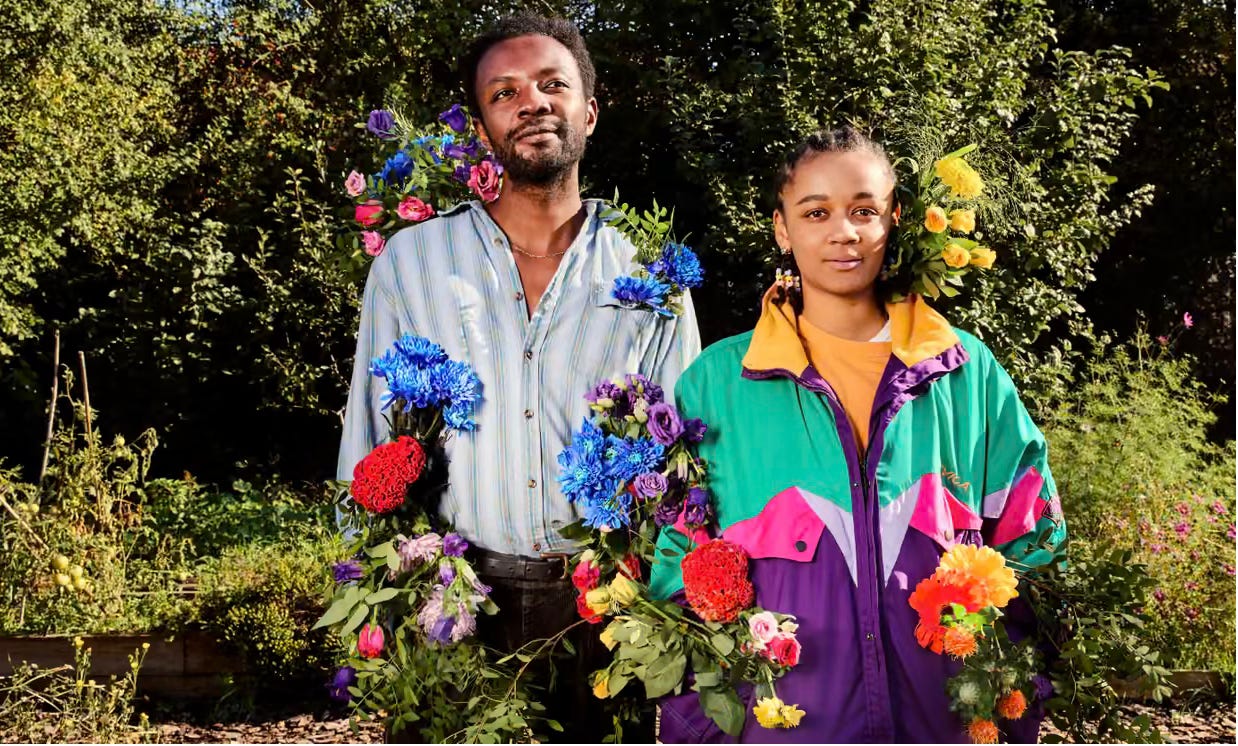Review: Lavender, Hyacinth, Violet, Yew
A breathtaking exploration of queer histories, memory, and the quiet ways we stay connected across time, across generations, and through the things we grow.
It’s not every day you see a piece of theatre that quietly rearranges something inside you. That takes you by the hand, pulls you through time, and leaves you seeing the world—and maybe even your own history—a little differently. But that’s exactly what Wiley has done with their gorgeous new play, Lavender, Hyacinth, Violent, Yew - now on at the Bush Theatre until the end of March. Go!
This is a play about memory, about loss, about the things we inherit without realising. Pip stumbles upon an old jacket—once belonging to a friend of their parents, a friend they never knew existed. A friend who was queer, like Pip. A friend whose absence lingers. As Pip begins to uncover their story, they don’t just learn about this person—they learn about their parents, too.
Their dad is reserved and methodical, a controlled presence who has never fully let Pip in. But this discovery cracks something open. And their mother—well, there are pieces of her past, of her own queer history, that Pip could never have imagined. Through diary entries, through memories unearthed, Pip begins to see them both in ways they never have before—not just as parents, but as people who existed before them, who loved and lost and lived in ways Pip is only beginning to understand.
Threaded through all of it—holding the past and present together—is the natural world. Gardening, growth, the way things bloom and wither and come back again. Their parents’ friend had a gift for making things grow, an instinctive knowledge of plants and soil, as if they could speak the language of the earth itself. Pip’s dad, on the other hand, approaches it all with careful precision, militant almost. But for both of them, it is the way they keep a bond alive—the one between best friends lost, between past and present. And Pip? Pip sits somewhere between the two, neither instinctive nor methodical, but drawn to it all the same, unknowingly part of something much bigger.
As the play unfolds, the timelines begin to shift and weave in a way that feels more connected than at the start. At first, the past and present feel like two separate worlds, with gaps between them - gaps in knowledge, in memory, in understanding. But by the end, we are slipping seamlessly between them, moving fluidly from then to now, watching how history echoes. Pip’s movements, their parents’ friend’s movements, even their language—mirroring each other, speaking across time. It’s beautiful to watch.
This play is a love letter—to queer histories, to the people and stories that shape us, to the things we pass down without words. Wiley draws from their own family history, and you can feel the truth of it through every word and movement. I don’t cry easily in the theatre, but this one got me!!!





